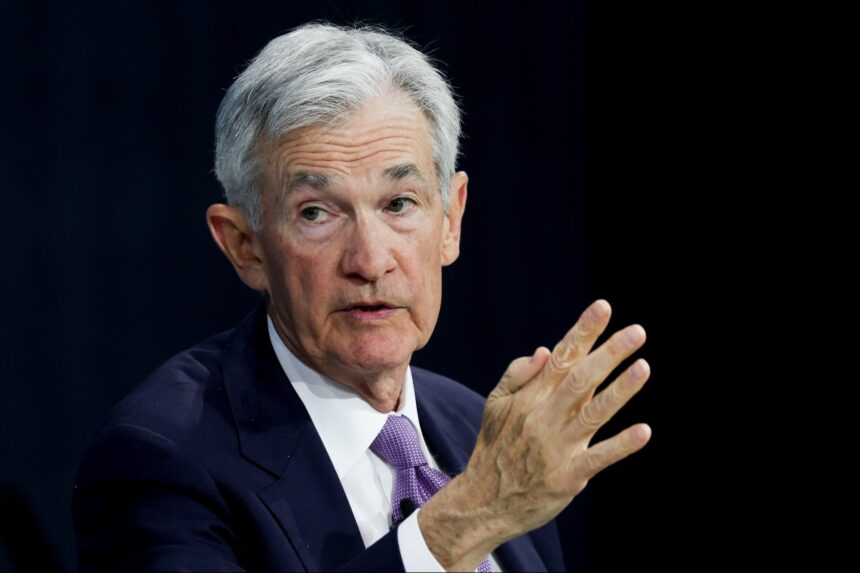Federal Reserve officials cut the federal funds rate, or the borrowing rate that banks charge each other, by 25 basis points or 0.25% on Wednesday.
The central bank’s rate-setting committee, the Federal Open Market Committee (FOMC), announced Wednesday that the target range for the federal funds rate was now 4.25% to 4.5%.
Federal Reserve chair Jerome Powell said at a news conference following the decision that the move to cut rates this month was a “closer call” than previous cuts but ultimately the “right call.” He said the FOMC was balancing between two risks: undermining economic activity in the labor market and undercutting progress on inflation.
Related: Here’s What the CPI Report Means for Your Wallet, According to JPMorgan and EY Experts
The rate cut follows two preceding cuts, one of 50 basis points in September and another of 25 basis points in November. The September adjustment was the first time the FOMC lowered rates in four years.
 Federal Reserve chair Jerome Powell. Photographer: Yuki Iwamura/Bloomberg via Getty Images
Federal Reserve chair Jerome Powell. Photographer: Yuki Iwamura/Bloomberg via Getty Images
Going forward, rate cuts aren’t certain. “In considering the extent and timing of additional adjustments to the target range for the federal funds rate, the Committee will carefully assess incoming data, the evolving outlook, and the balance of risks,” the FOMC wrote in a statement.
Dana Menard, CFP, founder and lead financial planner at Twin Cities Wealth Strategies told CNET that these cuts will affect shorter-term CDs and savings accounts, which “will likely fall by the same amount as the cut, with longer-term CDs and rates also being reduced.”
Will a rate cut affect mortgage rates?
A lower federal funds rate ripples out to lower borrowing costs for consumer-facing loans, like credit cards and personal loans. The purpose of adjusting the rate is to keep prices stable and respond to the labor market.
The 0.25% rate cut “will not have any impact on mortgage rates,” says Melissa Cohn, regional vice president of William Raveis Mortgage and a 40-year veteran of the mortgage industry. Rates as of Wednesday were 7.13% for a 30-year fixed mortgage.
Cohn told Entrepreneur in an emailed statement that “mortgage rates are data-driven, and if you look at the data, it doesn’t support much lower interest rates.”
Rates hovering around 7% is “sort of a new normal,” she said.
Related: Barbara Corcoran Says This Is the Interest Rate Magic Number That Will Make the Market ‘Go Ballistic’
Calixto Garcia-Velez, president and CEO at BanescoUSA in Miami told Bankrate that the 30-year mortgage rates are tied to the 10-year Treasury bonds, “and long-term Treasury bonds have been increasing,” which is why “residential loan rates haven’t been falling as much as people have expected.”











